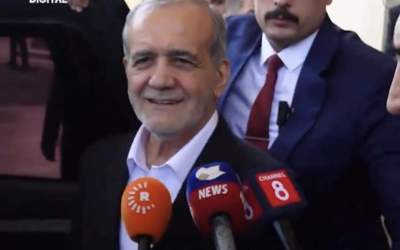Saturday 27 October 2018 - 13:12
Story Code : 324705
How will Iran-EU trade mechanism be implemented?
Sputnik - According to Mehdi Sanai, Iran's ambassador to Russia, �the European Union is continuing to strive to develop a financial and economic plan for trade cooperation with Iran; this mechanism will be launched in November 2018.�
Nikolai Kozhanov, an orientalist, expert on�Iran and associate professor at�the European University of�St. Petersburg, told Sputnik about�the trade mechanism and how it will be implemented. He also explained what measures Iran would put in�place to�deal with�the new sanctions.
The expert said that not all the details of�the mechanism have been disclosed yet. But with�everything that the EU and Iran have said in�this regard, it appears that the new mechanism will be the implementation of�an idea tested by�Iran in�Turkey and China in�2010 and 2015.
"In fact, we are speaking here of�creating a global European clearing center where Iran's goods and oil are shipped to�a European country, such as�Spain; the money is then paid to�the structure and the Iranians will be able to�use it to�buy import goods from�any other European country, such as�Germany," the academic said.
"On the one hand, such a system allows for�the diminishing of�the dollar in�the entire financial system, which could potentially be controlled or influenced by�the US; and on�the other hand, such a clearing center allows for�the creation of�a closed structure that doesn't give away any information on�the buyers of�Iranian oil."
However, the system has certain shortcomings that have to�do with�sanctions. These shortcomings are related to�the fact that money acquired from�the sale of�goods can only be used within�the Eurozone.
"This money can't be taken out�of Europe, invested in�a country's economy or the economies of�some third countries. That means that this money will only be circulating within�the EU's borders," Kozhanov said.
The expert stressed that the operation of�such a mechanism wouldn't encourage cooperation of�large European companies with�Iran. "The system is intended for�smaller and medium-sized European businesses, because financial operations, for�example with�Siemens, can be tracked down. Moreover, European entrepreneurs are very afraid of�US offshore sanctions," he said.
As for�the currency used in�the transactions, the Russian expert said "they are likely to�be made in�euros; and only banks will withdraw from�this mutual calculation system." Kozhanov noted that "even if the structure is put under�sanctions, it won't be affected much, as�the system works independently and only with�the Iranians and Europeans."
'Old War' in�Modern Conditions
According to�Kozhanov, while the United States has studied its previous experiences in�countering Iran and aims to�use a new tactic, Iran and the EU are going to�use the same methods they used during "the old war."
The expert believes that this time, Iran should bear in�mind that the situation has changed: "Firstly, Iran's traditional neighbors may not be ready to�help Tehran bypass sanctions. The Americans have effectively brainwashed the UAE and Baghdad; the Turks have also been warned that they may end up�in jail if they collaborate with�Iran."
The US is well aware that the most important thing is not even the fact that Iran will be able to�sell its oil, but�the possibility of�Iran to�withdraw money from�trade with�other countries. The clearing center fully satisfies the Americans, because the funds belonging to�Iran are going to�be locked there, the expert pointed out.
Kozhanov said that the Americans have very good analysts on�the economic situation in�Iran who are well aware that the country's banking sector is facing major problems. He says it's unlikely that the sanctions will also include those Iranian banks that have nothing to�do with�the nuclear program.
What Measures Will Iran Take?
Kozhanov believes that the Iranians, despite�being innovative, won't be able to�come up�with a completely new strategy, but�will improve on�their former tactics.
"Iran hasn't invented anything new, they say so themselves. The Iranian parliament's reports in�recent months say that they don't have any new mechanisms. In the past, the Iranians sold their petrochemical products to�offset a fall in�oil revenue, but�now the Americans are saying they should hit the Iranian petrochemical industry, which is one of�the loopholes that Iran previously had to�bypass or offset sanctions. It will be interesting to�see whether the Iranians can think of�new ways to�try to�beat the Americans under�these conditions," the expert said.
# Tags










